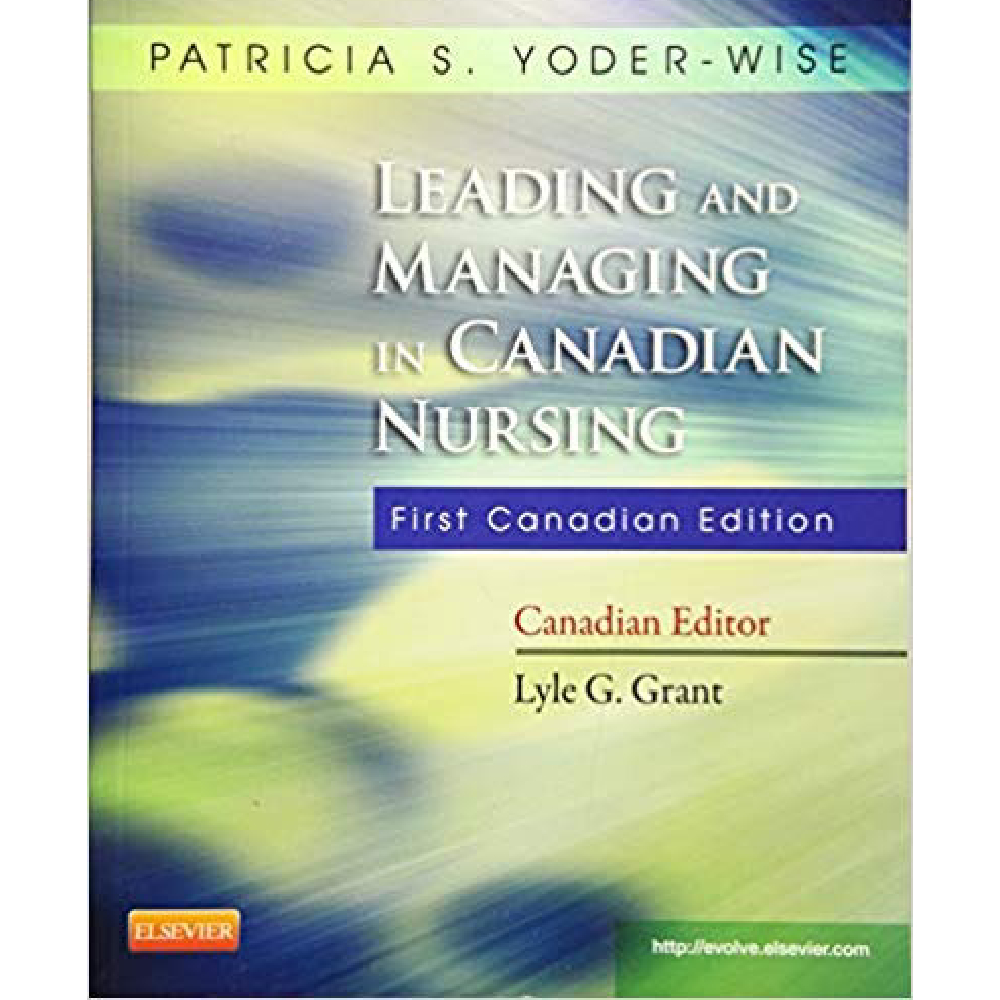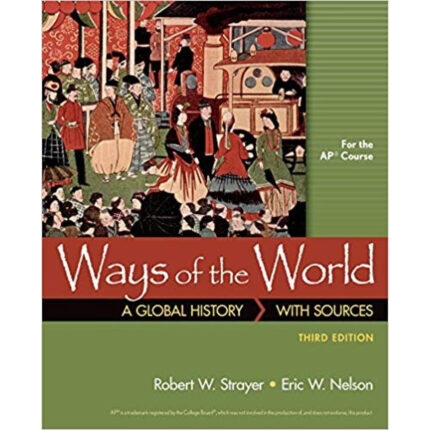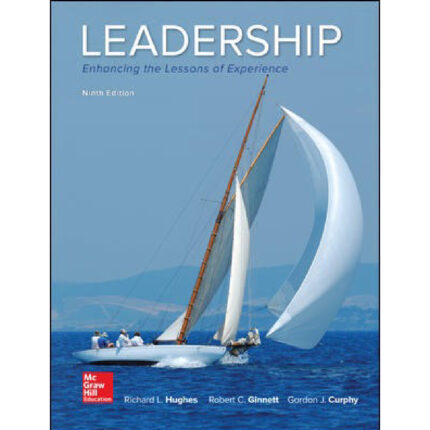Chapter 11: Power, Politics, and Influence
MULTIPLE CHOICE
1. A nurse manager is encountering poor staff morale on her unit. While participating in a baccalaureate course, the nurse manager had learned that one of the reasons nurses lack power today is probably because of the past. In the early decades of the profession, nurses lacked power because
a. nurses freely chose to defer to physicians and administrators with more education.
b. women were not socialized to exert power.
c. the first nursing licensure laws prohibited nurses from making most decisions.
d. nurses astutely recognized the risks of grabbing too much power too soon.
ANS: B
Nurses’ lack of involvement in politics is sometimes associated with their discomfort with acknowledging and using power. Nursing has been a predominantly female profession, and women traditionally were not socialized to exert power.
DIF: Cognitive Level: Understand REF: Pages 187-188
TOP: Nursing Process: Assessment
2. Nurses who engage in infighting, seek physician support against nursing colleagues, and avoid membership in nursing organizations
a. refuse to believe that they are acting like members of groups that suffer socioeconomic oppression.
b. do not understand how their failure to exercise power can limit the power of the whole profession.
c. purposefully choose to exercise their power in the workplace through indirect means.
d. suffer from learned helplessness as a result of abuse by powerful nurse executives.
ANS: B
Lack of understanding about the appropriate exercise of power affects internal and external relationships.
DIF: Cognitive Level: Understand REF: Pages 187-188 | Pages 189-190
TOP: Nursing Process: Assessment
3. A nurse belongs to several professional organizations, serving on a provincial-level committee of one group and on two task forces at work. The nurse is committed to a range of health issues. This nurse exemplifies which level of political activism in nursing?
a. Gladiator
b. Buy-in
c. Self-interest
d. Political sophistication
ANS: D
The nurse recognizes that influence occurs at many levels and that public policy and politics shape what nurses do as nurses—from nursing practice acts that allow licensure to policies that drive reimbursement.
DIF: Cognitive Level: Understand REF: Page 200
TOP: Nursing Process: Assessment
4. A manager relies on his director of nursing (immediate supervisor) for advice about enrolling in graduate school to prepare for a career as a nurse executive. The director may exercise what kinds of power in the relationship with the manager in this advisory situation?
a. Expert, coercive, and referent
b. Reward, connection, and information
c. Perceived, expert, and connection
d. Reward, referent, and connection
ANS: C
Because the director is in a leadership role, he comes with knowledge or expertise that is required to assume a leadership role, giving him perceived and expert power. He has connection power inasmuch as an expert registered nurse (RN) is probably well networked or connected to other professionals in the unit, facility, and organization.
DIF: Cognitive Level: Understand REF: Page 188
TOP: Nursing Process: Assessment
5. A nurse manager must implement a 2% budget cut on the nursing unit. Which approach should the manager use to empower the staff of the unit most effectively?
a. Discuss the guidelines for the budget cuts with the staff, making the decisions with those who participate in the discussion.
b. Inform the staff of the budget cuts in a series of small group meetings, and accept their ideas in writing only.
c. Provide the staff with handouts about the budget cuts, and let them make recommendations in writing.
d. Hold a series of mandatory meetings on the budget cuts, asking staff for ideas on the cuts.
ANS: A
Empowerment involves valuing the ideas and opinions of other people and involving them in the decision-making process. It means releasing authority and allowing other people to assume accountability as well.
DIF: Cognitive Level: Apply REF: Page 189
TOP: Nursing Process: Implementation
6. During orientation of new nurse managers, the chief nursing officer stresses strategies that help nurse managers to achieve a powerful image. Which groups of behaviours best contribute to a powerful image for the nurse manager?
a. Greeting patients, families, and colleagues with a handshake and a smile; listening carefully when problems arise
b. For men, no facial hair, always wearing a suit and tie; for women, always wearing a suit and high-heeled shoes
c. Maintaining a soft voice during times of conflict; making unbroken eye contact during interactions
d. Smiling all the time; always wearing a suit and carrying a briefcase; for women, wearing no jewellery
ANS: A
A powerful and positive approach is communicated through confident behaviours such as greeting other people, smiling, and showing respect for the opinions of other people through listening.
DIF: Cognitive Level: Apply REF: Page 192
TOP: Nursing Process: Implementation
7. Tomas, a new RN, is finding it difficult to practice because he is encountering, on a daily basis, differences between his learned ideals and what he is witnessing as nursing practice on the unit. This situation is an example of
a. the theory-to-practice gap.
b. transition shock.
c. an inadequately prepared nurse.
d. ethical distress.
ANS: B
Entry into the workplace can cause a significant clash between learned ideals and actual nursing practice: reality shock was the term originally coined, but the clash is now referred to as transition shock.
DIF: Cognitive Level: Understand REF: Page 193
TOP: Nursing Process: Assessment
8. A nurse manager recognizes the need to expand her professional network as she begins a job search for a middle-management position. Which of the following actions is least likely to expand her job-searching network?
a. Reviewing her address book or card file for names and phone numbers of former colleagues who are now in middle-management positions
b. Making an appointment to meet with a former instructor from her graduate program in nursing administration
c. Making a long overdue return call to a former colleague who is now a chief nurse executive
d. Attending a state-level conference for nurse managers and executives and attending informal luncheons and receptions
ANS: C
Networking is the result of identifying, valuing, and maintaining relationships with a system of individuals who are sources of information, advice, and support. In this situation, the chief nurse executive and the nurse may not have a close or valued relationship, in view of the length of time since their last communication, and so the executive may not be in the best position to provide support or advice.
DIF: Cognitive Level: Understand REF: Page 194
TOP: Nursing Process: Implementation
9. A staff nurse asks the nurse manager for a few days off for personal reasons. The nurse manager turns in the request to the human resources office with a note indicating that the staff nurse has demonstrated excellent working skills and is a valued employee. The nurse manager has used the influence of her position to help this staff member. Influence is the process of
a. using power.
b. empowering others.
c. understanding power.
d. moving past apathy.
ANS: A
Influence involves the use of power to effect certain outcomes: in this situation, to arrange days off for a valued employee.
DIF: Cognitive Level: Apply REF: Pages 186-187
TOP: Nursing Process: Implementation
10. A nurse is participating in a baccalaureate course. One assignment is to attend the legislative session regarding the new role of physician assistants. Nurses should be involved in shaping public policy primarily because
a. involvement will enable nurses to take over the health care system at some point in the future.
b. other health care professions are less concerned about the essential needs of patients.
c. such activities are important career builders for nurses who seek top-level executive positions.
d. they are closest to the front line of health care and see how it affects patients and families.
ANS: D
Participation in the legislative process concerning health care through membership in professional organizations and through personal contact with public officials is critical because these processes affect the lives of patients and the advancement of the profession.
DIF: Cognitive Level: Understand REF: Pages 195-196
TOP: Nursing Process: Assessment













Reviews
There are no reviews yet.